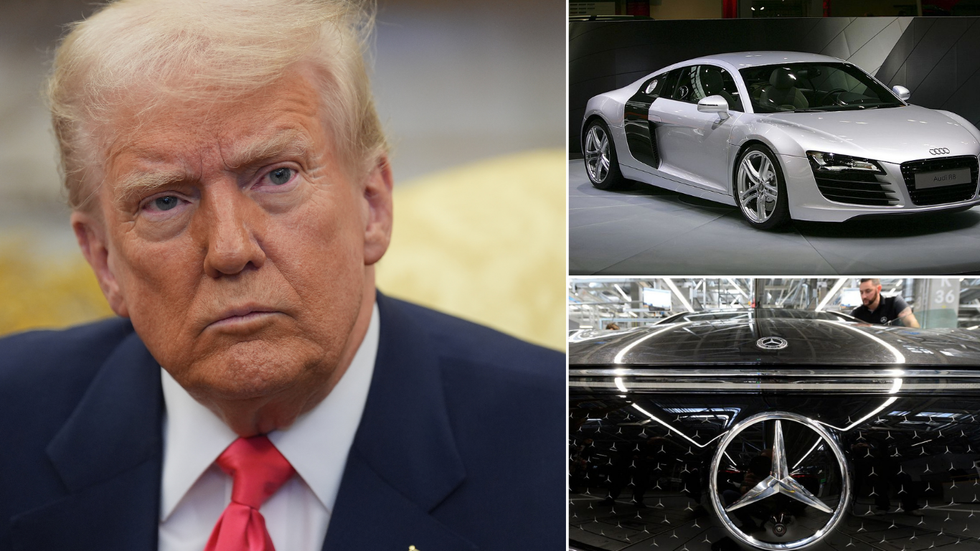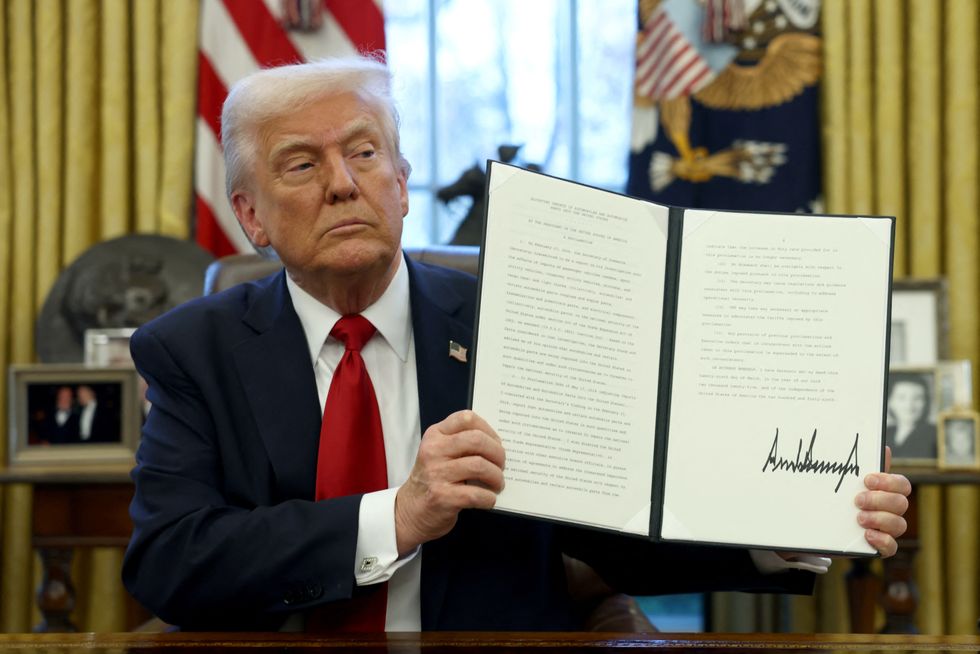WATCH: Sir Ed Davey discusses Trump's 25 per cent tariff on foreign car imports
GB NEWS
Trump announced a 25 per cent tariff on all cars imported to the US
Don't Miss
Most Read
Trending on GB News
German car brand Mercedes-Benz has warned that global tariffs have created the highest "complexity" the car industry has faced in more than three decades.
The car maker’s chief executive Ola Källenius previously warned the transition to electric vehicles alongside shifts in geopolitics and trade has fundamentally challenged the industry.
Speaking at Shanghai's auto show, Källenius pointed to increasing challenges as global manufacturers face mounting trade barriers affecting their ability to operate across international markets.
Global carmakers have been forced to deal with higher EU tariffs on electric vehicles imported from China, as well as President Donald Trump's looming 25 per cent tariffs on car exports to the US.
Do you have a story you'd like to share? Get in touch by emailingmotoring@gbnews.uk

The automakers warned that rising global tension has had a profound impact on the car sector
GETTY
He told reporters at the auto show: "I don't think I've experienced a higher level of complexity in my 32 years in the business.
"We're also dependent on the ability to import and export in all directions if restrictions, tariffs, or other trade barriers arise, that is not good for general global trade and would affect us as well."
The Mercedes chief was among other automotive executives who met Trump last week to discuss tariffs, as the industry grapples with rapidly changing trade conditions.
The carmakers have repeatedly criticised EU tariffs on Chinese-made electric vehicles, which can reach up to 45 per cent. They also feared their exports to China could suffer from retaliation by Beijing.
German manufacturers also ship EVs from China to Europe themselves, making the tariffs directly harmful to their business model.
Källenius reiterated hopes that an "equitable and intelligent solution" would be found in continuing discussions between Brussels and Beijing.
Despite selling 14 per cent of its cars in the US last year, Mercedes said it remains committed to the American market "in the long term" even as Trump's planned 25 per cent tariffs loom.
Meanwhile, Audi chief executive Gernot Döllner also criticised trade restrictions at China's biggest car show. "Tariffs are not the solution," he told the Financial Times. "They hinder innovation, and they make a false competition."
Döllner added: "We are producing in China for over 30 years now and we believe other solutions have to be found."
Källenius described China as "the most competitively intense market" while emphasising the importance of open economies.
He said: "I can only repeat what history tells us: economies that are free and open and are exposed to the full force of competition are usually the ones that are most innovative.
"We are open for competition in any direction through any country on a level playing field."
Tariffs between the US and China have spiralled to more than 100 per cent this month, creating additional uncertainty for global carmakers.
LATEST DEVELOPMENTS:
 Donald Trump confirmed that a 25 per cent tariff would apply to all foreign car importsREUTERS
Donald Trump confirmed that a 25 per cent tariff would apply to all foreign car importsREUTERSThe Shanghai auto show, which alerted the world to China's rapid EV technology development when last held in 2023, has become a focal point for these tensions.
Chinese automakers, including BYD, expanded overseas in 2024, prompting protective tariffs from both the US and EU.








